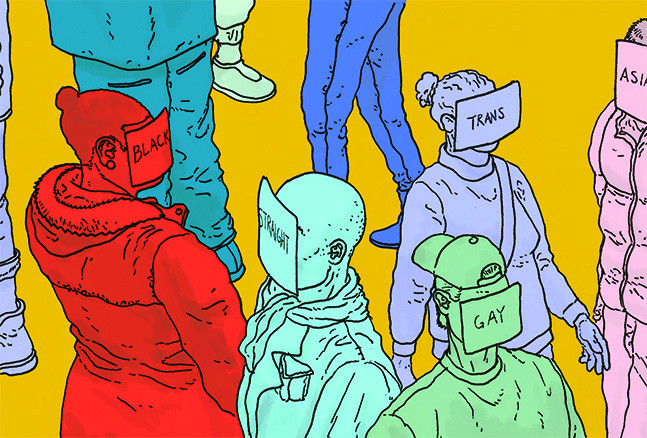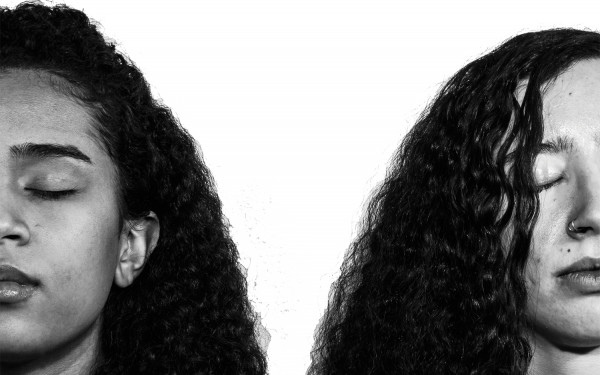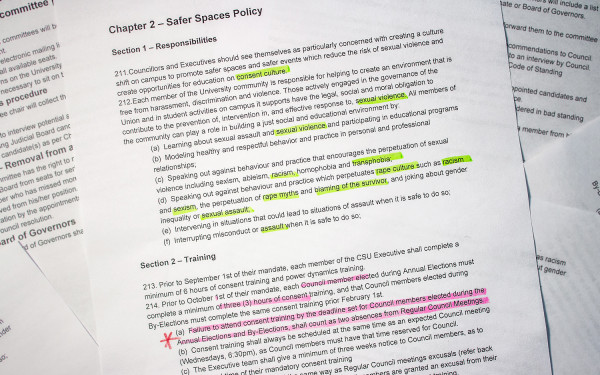Who am I? Labels, society, and identity
A personal reflection on how labels influence our self-perception
I am a mixed-race woman who was always taller and larger than my peers. Growing up, I was always made aware that I was different from those around me.
The label of being overweight plagued me for a long time and still does. People tend to look down on someone overweight. This made me extra cautious in how I dressed.
I heard many times that fat people should not wear leggings, or that if skirts were above my knees, it was gross and nobody wanted to see that. So, the label thrown on me by others influenced my style.
It also instilled fear in me because I was always worried people would judge me if I wore things society deemed inappropriate for a fat person.
Labels are inescapable elements of our lives. On the surface, this can seem a simple means of classification. However, in my experience, labels can also create a lot of dissonance.
During the provincial election in 2012, when there were talks about tuition hikes, it seemed like voting for the Liberal Party meant accepting the hikes. I was told that since I was a student, I should not vote for the Liberals. However, I am also an anglophone. At the time, I felt the Quebec Liberal Party was the only one that acknowledged the importance of my language and wanted to avoid separation.
I felt torn between two important labels that were in direct conflict—being a student and being an anglophone in Quebec. I had to figure out which label took precedence, and this caused a lot of internal conflict.
Some would tell me my student status was most important and others that my anglophone identity is permanent. It led to a lot of reflection, and I realized just how complex it is to make personal decisions. I had to succumb and choose one identity over the other.
I am half-Cuban and half-Italian. So, to many people, I am deemed "not coloured enough," which has put me in a precarious position. I never feel comfortable speaking out about issues about People of Colour. I was actually once told "no offence, Rhea, but you are not Black enough to talk about Black issues. You can pass for white, so please don't act like you understand."
I was completely shattered. The comment hurt me because I had always thought of myself as a minority, and for someone else to label me as not Black enough was shocking. My ethnicity, that I had no control over, was suddenly incompatible with each other. I never even thought about trying to pass for white, because I didn't mind being mixed-race. This changed how I saw myself and influenced me to be less vocal.
When labels are used, there are assumptions that get attached to them. The way these stereotypes get used ultimately influence the ways we interact with other people. The issue is that stereotypes, according to the Momentous Institute, “contribute to a dysfunctional class system.” And in a lot of ways, this can explain why stereotypes are used. The fact is the different ways we are classified contribute to the types of things we might choose to believe.
The question as to why labels have such an influence on us has been one I have been reflecting on for quite some time now. Society has created the labels that we use to define ourselves, which suggests an acceptance to some extent. In accepting the labels, we can unintentionally accept notions that come with them. We are products of our society, and that ultimately impacts us in ways we are not always aware of.
This article originally appeared in The Influence/Influenced Issue, published January 13, 2021.







